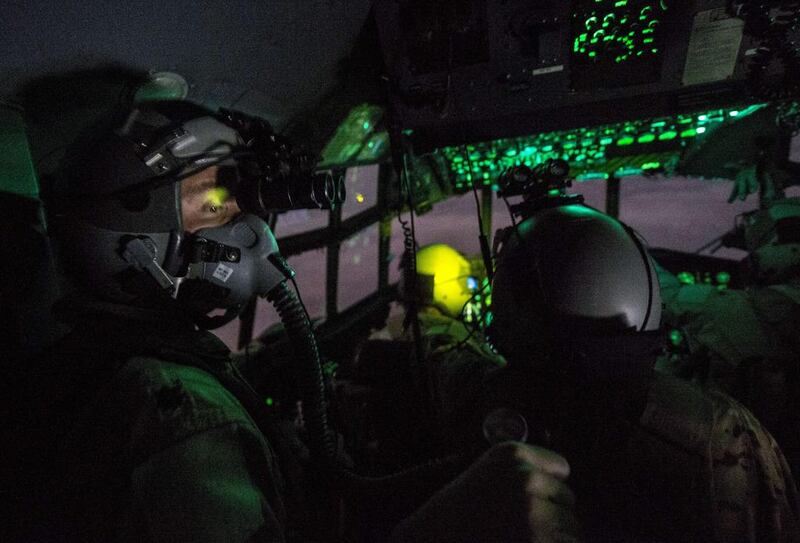While Kobani desperately tries to hold out against ISIL, Turkish soldiers – from Nato’s second largest army – have, until yesterday, merely been observing from across the border. Coalition air strikes may not be enough to save the town. And why should they be, if they cannot shield Baghdad itself from being threatened by these forces of savagery? The Iraqi army, despite a massive $25 billion having been spent building and training it, not only crumbles at ISIL’s every advance, but has left so much equipment in the field that it has managed to furnish its opponents with a sizeable stock of American-made weapons and ammunition.
If you agree with America’s domestic critics who argue that ISIL may be a regional problem but does not pose a security risk in the US, Barack Obama is doing too much. If you agree with Syrian opposition figures who bitterly complain that the bombings are strengthening the hand of Bashar Al Assad, he is doing too little. In short, the picture in the Middle East is as confusing as ever.
Just over three years ago, there seemed far greater clarity and cause for optimism.
Muammar Qaddafi had just fallen from power in Libya and, as I noted in these pages, “the Nato-led operation appears so far to have had happy consequences”.
I also added, however, that the backing of the Arab League had been crucial and warned: “The abysmal failure of Arab states – with the honourable exception of the Gulf Cooperation Council, and the United Arab Emirates and Qatar in particular, to follow up with concrete measures to help protect the people of Libya from their megalomaniac leader, must be remedied in future. If countries or associations, such as the Arab League, Asean or the African Union, do not act when massacres are threatened on their doorstep, they prove the point of those who argue that only the West and the US have both the ability and the determination to step in.”
I would echo that today. While the coalition may include many countries from the region, the boots absent from the ground belong to Arabs as well as Americans, and it still falls to the US and its reluctant warrior-president, to lead.
Mr Obama’s hesitancy is understandable. Not only does he not want to repeat the catastrophic American military involvements of yesterday, he is already seeing a past pattern repeated: that of US intervention being requested, only for it then to be swiftly criticised by the very people it is supposed to help.
To be fair to America’s leaders, the intentions behind many of their foreign misadventures have been genuinely idealistic, however misguided. George W Bush and Dick Cheney may have been responsible for wars that almost destroyed at least one state and killed hundreds of thousands, but they did believe that ridding the world of Saddam Hussein was for the good.
Their outlook was not that of the cynics who preferred brutal Latin American dictators in the 1970s and 1980s if there was a danger that democracy might produce governments too leftist for their taste.
American talk of the US being “the indispensable nation” strikes many as hubristic and a sign of its unjustified assumption that it has the right to act unilaterally whenever it chooses. But the fact is that many countries frequently suggest it has an obligation to be the world’s policeman, while at the same time complaining vigorously when it acts in that manner.
This Janus-headed attitude towards American leadership has not gone unnoticed, particularly with regard to Nato, most of whose member countries feel no shame about sheltering under the umbrella of the US’s overwhelming military superiority, while spending only a small fraction of their budgets on maintaining their militaries.
The then outgoing US defence secretary Robert Gates made this point when the Libyan campaign, which had been led by Britain and France, was suffering from just such a problem.
“The mightiest military alliance in history is only 11 weeks into an operation against a poorly-armed regime in a sparsely populated country,” he said at the time. “Yet many allies are beginning to run out of munitions, requiring the US, once more, to make up the difference.”
This contradictory stance is increasingly not going to be sustainable as America’s comparative military advantage is eroded in the coming decades. A Foreign Policy essay this summer pointed out that: “Growth in military spending correlates with GDP growth, so as other economies grow, those countries will likely spend more on defence, reducing the relative military power of the United States.” They quote a British think tank, the International Institute for Strategic Studies, as predicting “that Beijing will spend as much on defence as Washington does by the late 2020s or early 2030s”.
The challenge may be nascent, but it is emerging unmistakably. Will regional blocs be willing to take ownership of crises in their own backyards – such as ISIL in the Middle East – or will they continue to call, at times of trouble, on a powerful guardian whose presence they often otherwise resent?
Given that the US’s powers are on the wane and, if isolationists such as Republican Senator Rand Paul gain sway in Washington, its inclination to act will decline still further, the long-term answer is obvious. Local actors must take charge of local problems. Time, as the Americans say, to step up to the plate.
Sholto Byrnes is a Doha-based commentator and consultant





